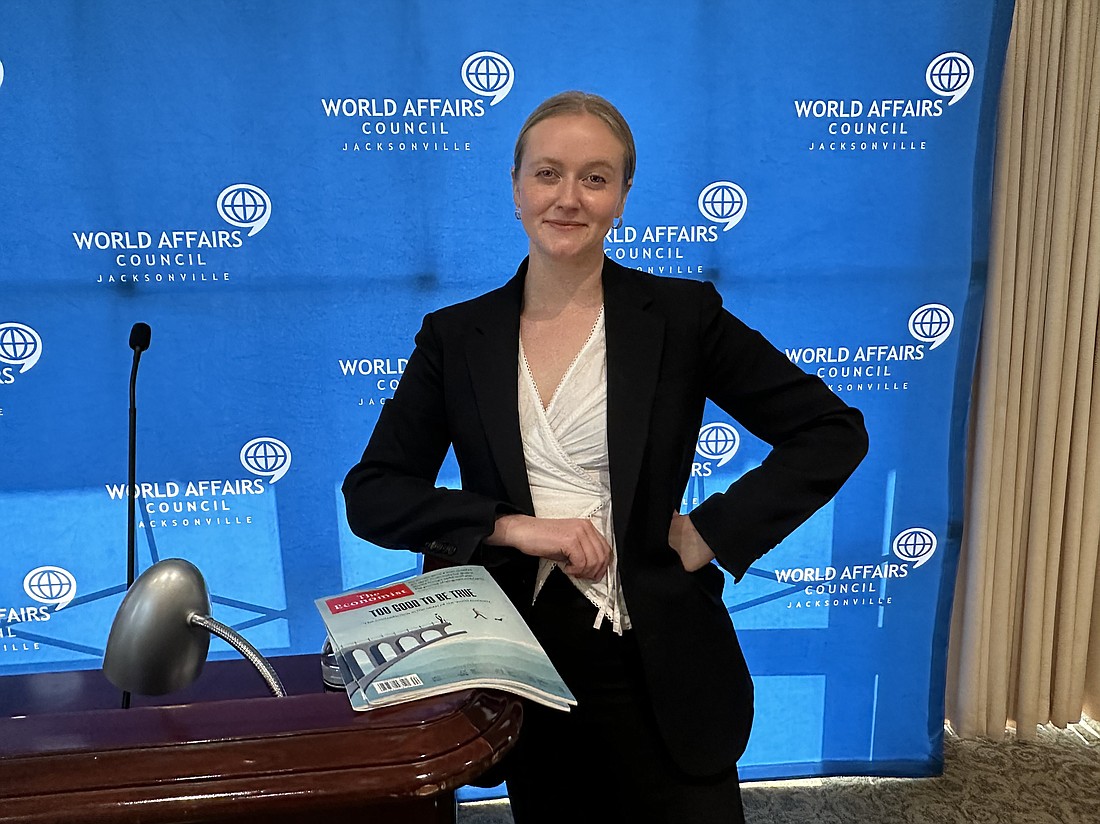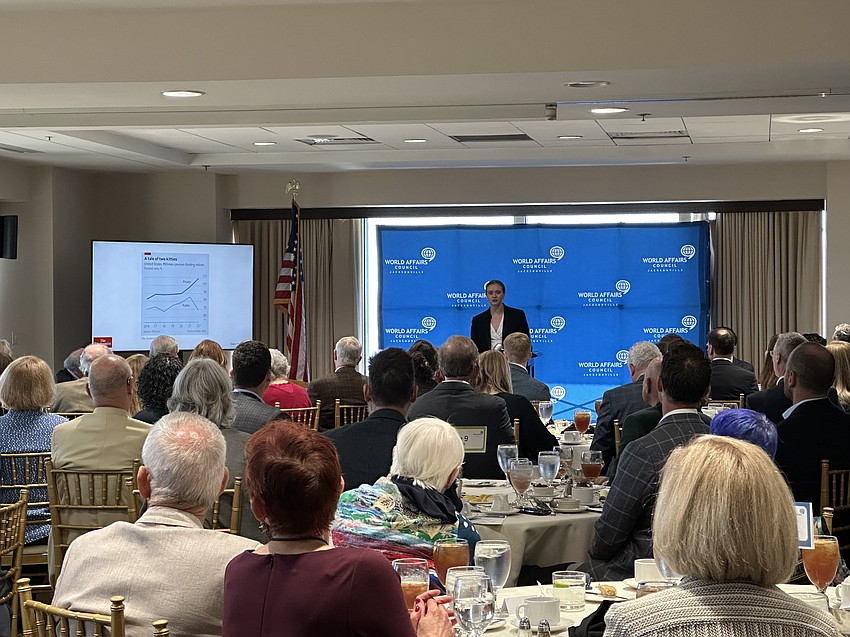
The cover of the latest issue of The Economist magazine has an illustration of a woman walking off a bridge with her dog – and continuing to walk on air – with the headline “Too good to be true.”
As the magazine’s Wall Street correspondent Alice Fulwood explained in a Nov. 7 talk to the World Affairs Council of Jacksonville, the world is experiencing a contradiction between high interest rates and continued economic expansion that seems too good to be true.
“Growth in the U.S. is still incredibly strong,” Fulwood said in her Global Business Luncheon talk to about 100 people at The River Club of Jacksonville in the Wells Fargo Center Downtown.
The Federal Reserve Board is attempting to cool off inflation by raising interest rates, which normally has the effect of slowing the economy. But the higher rates are not dampening growth.
“They don’t appear to be at the moment,” Fulwood said.
“Something has to break.”

The economy has survived several potential shocks to the system since the coronavirus pandemic began in early 2020, starting with big government stimulus spending to help businesses and consumers survive pandemic shutdowns.
“We started to worry at the end of the year about inflation,” because of the large amount of money pumped into the financial system, Fulwood said.
That prompted the Fed to start raising interest rates, which threatened to slow down the economy.
“In early ’22 we started to get worried,” said Fulwood, but the economy continued to move forward.
She said the economy continued to survive other potential crises, including the collapse of cryptocurrency trading firm FTX in November 2022 and the failure of Silicon Valley Bank in March 2023.
“I’m not sure the financial system breaking is going to be the thing that eventually slows the economy down,” Fulwood said.
Corporations are still reporting big profits, despite higher interest costs.
“They’re still making about four times as much profit as they are paying in interest,” Fulwood said.
She said there are three possible ways to look at the economic outlook. One is that we’ve reached a “new normal” where the economy can continue to thrive with high interest rates and high amounts of government spending.
A second scenario is the spending creates a fiscal crisis. Fulwood showed a graph projecting that U.S. federal interest payments on its debt will reach 35% of the government’s revenue by 2053, compared with about 15% now.
The third scenario is simply a lag time between the Fed’s interest rate increases and when they could slow the economy down, which might be several months away, she said.
Fulwood surveyed the attendees on which scenario they believe is more likely. By her informal count, about 60% expect a fiscal crisis, 30% believe it’s just a lagging effect that will impact the economy in time and 10% think this is the new normal.
Fulwood said we may be reading about her survey of Jacksonville business people in a future issue of The Economist, but she didn’t say which scenario she believes is most likely.
“The trick is it could be a little bit of everything,” she said.